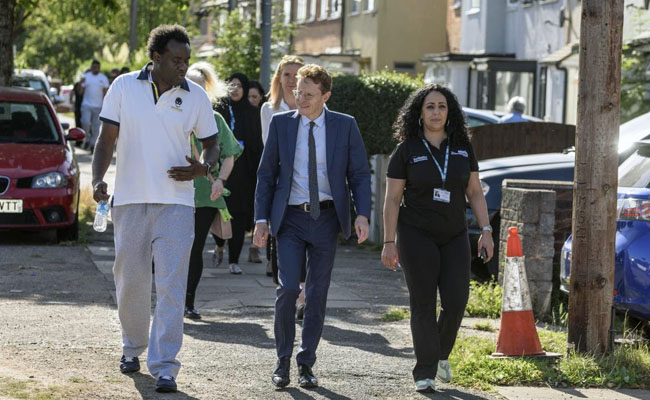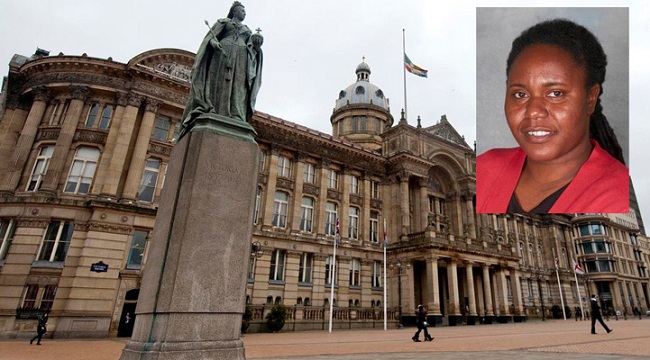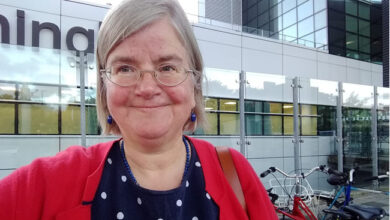Cycling and walking on prescription launched in Birmingham and the Black Country to boost health and wellbeing

Midlands: People in Birmingham and the Black Country are getting cycling, walking and other physical activity on prescription from their GP to improve both their physical and mental health thanks to a new social prescribing scheme.
Social prescribing aims to reduce health inequality and make active lifestyles more attractive to people by offering free-to-access cycling and walking activities, such as walking groups, free bikes and cycle training.
Working with the West Midlands Combined Authority (WMCA), The Active Wellbeing Society (TAWS) launched the programme in response to an ever-growing need to find new and innovative ways of tackling key health issues including obesity, poor health, inactivity and loneliness – issues which have been a factor for those hardest hit by the Covid 19 pandemic.
TAWS has teamed up with eight surgeries and health centres in key areas of Birmingham, to identify and support patients by referring them to a range of non-clinical activities in order to combat physical or mental health issues. Due to early success, further funding has been sought to roll out the programme to more areas.
These services aim to help them connect with others, get active and build confidence by joining walking or cycling groups at their local practice or in the community.

In Birmingham, the programme aims to deliver over 150 social prescribing services, using staff to working with communities to design the activities based on local need. It has so far helped over 40 people in the local community.
One of these participants was 53-year-old Art Gilchrist, who found himself struggling with pain, anxiety and stress after treatment for a previous injury was put on hold during the pandemic.
Art was contacted by link worker Leila Yafai through his GP and joined a local walking group that helped him get active and meet others with similar experiences.
Through taking part in the group, Art’s confidence, social skills, mental and physical health have improved greatly and he has now become a volunteer himself to support others.
Art said: “While you walk in park you have the opportunity to become physically active while you’re sharing experiences and listening to other people. You become absent form society by being at home, being sick. This is a step by step reintroduction to society.”
“It gives me confidence to go out with people and interact with other people. It creates that avenue of relief for me. I’m now able to turn those negatives into positives.”
Leila Yafai, senior social prescribing link worker, said: “I work closely with patients across Bordesley East to connect them to the heart of their community, engaging them with social and physical activities to improve health and wellbeing. Having witnessed the isolation and social, physical and mental impacts of the pandemic, social prescribing is a helping hand.”
Dr Subeena Suleman, clinical director at Iridium Medical Practice, said: “We know that people with active lifestyles are less likely to develop cardiovascular disease and type 2 diabetes, less prone to falls and pain and are less likely to develop anxiety or depression.
“These services open up opportunities for people to get more physically active, where in a supported environment they are able to build their confidence and ability and can see genuinely life changing results, not just in their physical health but in a range of ways.”
Andy Street, Mayor of the West Midlands said: “The project demonstrates our commitment to improving health and wellbeing in the region for all people as we emerge from the Covid 19 pandemic.
“People-powered health initiatives where people are supported to make positive steps for themselves without traditional medical interventions, such as by cycling and walking, can have incredibly positive outcomes.
“We’re doing this while connecting people to new cycling and walking infrastructure that will help make it safer and easier for people to cycle and walk and add the benefits to their daily lives.”
The project, funded by West Midlands Active Travel Fund, came about as a result of a pilot scheme introduced during the first Covid-19 lockdown to tackle health inactivity.
The pilot programme was delivered in the Black Country by Active Black Country which engaged with GPs to raise awareness of the benefits of walking and cycling in increasing activity. Patients are also signposted into opportunities to be active, via free bikes on prescription and led rides, through the Sport England funded Active Communities programme.
A bid is currently with the Department for Transport for additional funding to roll-out the programme across the whole of the West Midlands, making it among the first regions to adopt this approach.





